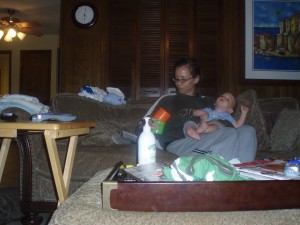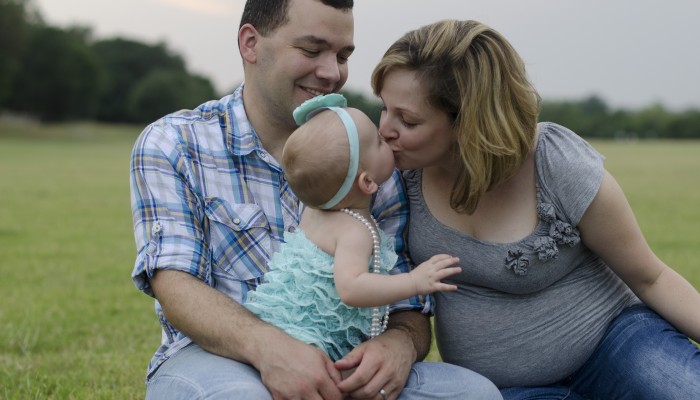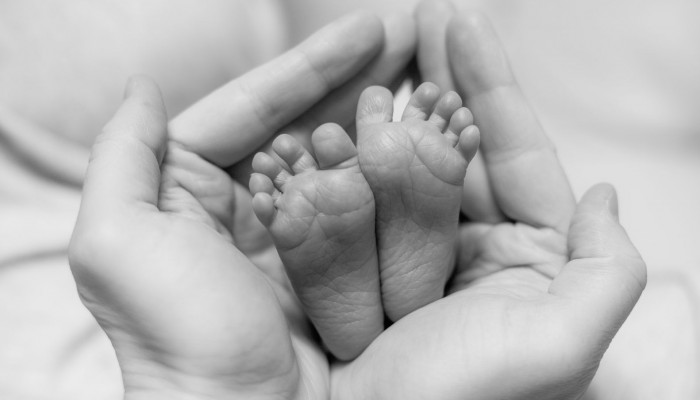My friend Val said the weirdest thing to my colicky infant daughter: “Sweet baby… I’m not afraid of you!” Once I was sure I’d heard her correctly, I realized that I was, in fact, afraid of my child. Not in a “Rosemary’s Baby” sort of way. I was afraid of my perceived lack of ability to adequately care for her. Her crying jags were starting around 2 am and lasting for a couple of hours, and the fall of night signaled another confrontation with my novice mommy status and cluelessness about how to soothe her. It was getting close to the end of visiting family, scheduled friend drop-bys, and J’s time off from his night shift. My anxiety about my first night alone with her was intensifying. We all got through it, but in retrospect, it didn’t have to be as grueling on me emotionally. Here’s what I would do differently:
1. I wouldn’t be a hero. You don’t have to do this on your own to prove your parenting ability to anyone. Delay being alone with your new baby as long as possible, and minimize how often you’re alone during the first 4 months. Other cultures have entire tribes sharing the parenting responsibility, but somewhere we got the idea that doing it alone is necessary. So much learning is taking place, and the curve is very steep. Even if everything is going well and your baby has very few adjustment issues, the weight of this new responsibility is intense. Just having someone in the house (your partner, a friend or family member, a night nanny), even if you don’t wind up needing any tangible help from them, can keep you calm and grounded.
2. I would talk through my fears with someone I trust, fast. Things rattling around in your head have a tendency to get bigger when they’re not shared. I didn’t realize how much fear I was sitting in until Val’s comment alerted me to it, which got the ball rolling. I acknowledged what was going on for me emotionally, opened up about it, and ultimately got the extra support I needed.
3. I would tell guilt to go to hell. I experienced so much pointless self-doubt and incrimination. I was convinced my daughter’s distress was my fault: not enough milk, not enough nurturing, and on really wacky nights, some sort of karmic backlash. Crap! All of it! She had colic! During the first few months, I recommend daily giving yourself a pass. Do everything you can to keep your baby and yourself safe and healthy, get help when you need it, and consider letting the rest go.
Here’s To Sanity and Tribes,
Cheryl




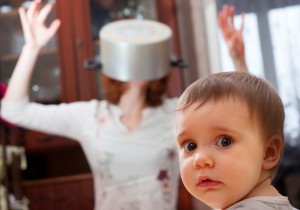





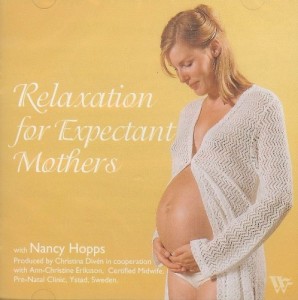







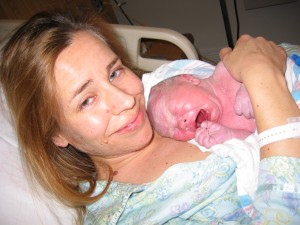
 Yes, my nostrils, eyes and hair are fun to stick fingers in. All of the time. Said no mom ever.
Yes, my nostrils, eyes and hair are fun to stick fingers in. All of the time. Said no mom ever.



